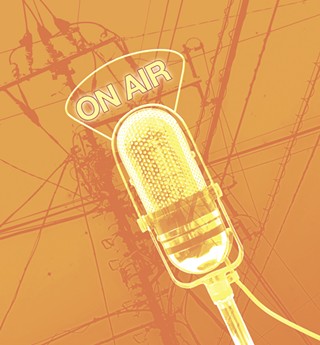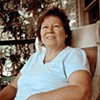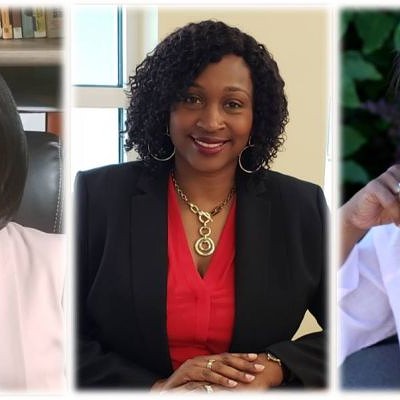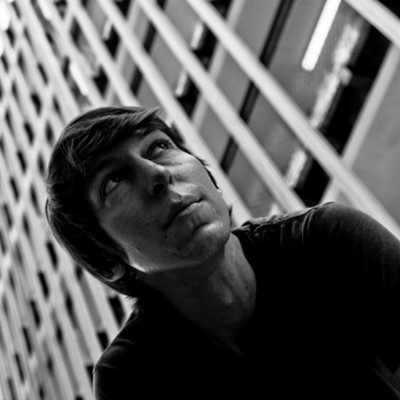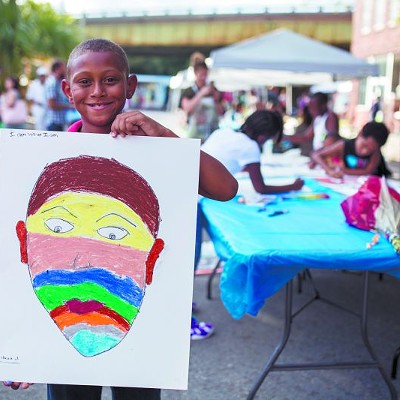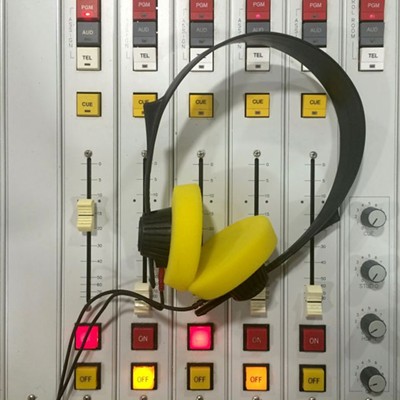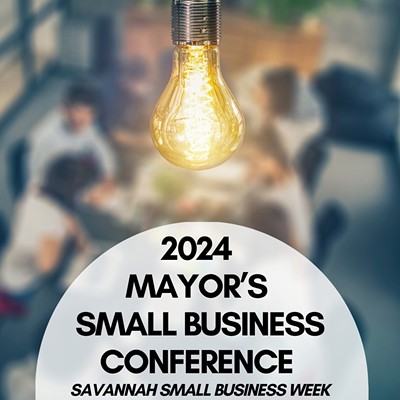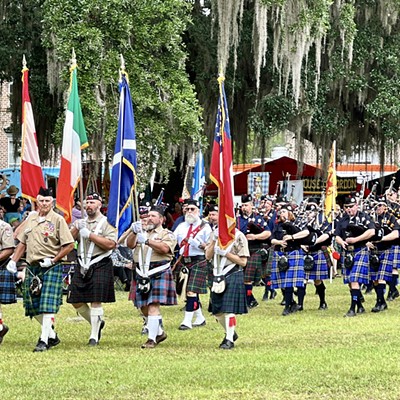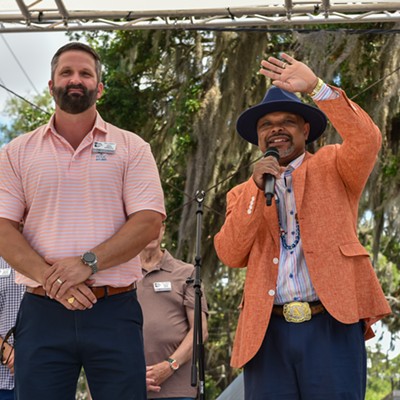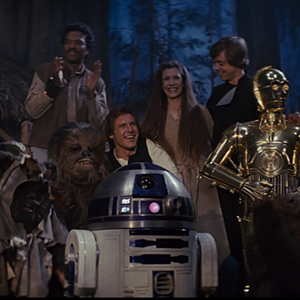When the Federal Communications Commission announced last week that the airwaves are open, the people were listening.
Thanks to the Local Community Radio Act of 2010, groups around the country have the opportunity to create their own low-power FM community radio stations for the first time in over a decade. Qualified non-profits, educational institutions and Native American tribes are eligible, and thousands are expected to fill the FCC inbox with applications, due October 29, 2013.
At least two Savannah organizations have already made great strides towards a point on the FM dial.
The Unitarian Universalist Church meets the basic FCC qualifications and is deep into phase one of the application process. Along with funding the required $3500 engineering study, the UU planning committee must include a detailed description of the proposed station. So far its vision for a community radio station mirrors UU's values of social justice, equality and inclusion as well as its history of advocating for civil rights.
But planned programming extends much further than church doctrine.
"This would be a venue for local news and local music as well as a place for other non-profit and community organizations to get airtime," says Vicki Weeks, a UU member on the station planning committee. "We want it to be an opportunity for the entire community to connect."
Possibilities might range from a global music hour to a talk show about resources for the poor to a nightly bedtime story for children. Programming could also include local art events, non-partisan political discussions, spoken word performances, health and wellness seminars, emergency notifications and environmental updates in accordance with UU's value of "respect for the interdependent web of all existence of which we are a part."
The church has also asked members to contribute suggestions to fill the hours, and Weeks has posted an online survey so the general public can contribute ideas. The survey can be found at www.surveymonkey.com/s/7KR5HQK and will be open until July 15.
A constant champion for progressive action, Weeks is also one of the grassroots organizers behind the local Coffee Party chapter and the recent push for City Council to adopt a resolution against Citizens United, the "corporations are people" ruling. Community radio means no corporate influences, though she and the rest of the UU team welcome local business sponsors.
That could mean direct financial donations or other kinds of partnerships: The church's downtown location on Troup Square isn't an ideal spot from which to broadcast, since the low-power signal would be limited to a five-mile radius. A better place would be somewhere further south near DeRenne Avenue, where the signal would reach the maximum amount of Savannah citizens.
"We don't have an exact location yet, but there are some local businesses that have large buildings out that way that may come on board," says Weeks.
To navigate the FCC's complex and competitive application process, UU has been working closely with the Philadelphia-based Prometheus Radio Project. Holding up the new low-power FM stations "as a tool for social justice organizing and a voice for community expression," Prometheus provides legal, technical and fundraising advice for potential fledgling stations as well as moral support.
A Prometheus representative first came through Savannah in December to drum up interest in starting a community radio station. About two dozen people attended the meeting organized by local musicians Dare Dukes and Anna Chandler, both of whom are involved in the arts and social justice communities.
Dukes is also currently working to build a cooperative of forward-thinking non-profits to run a station whose mission is to provide local, progressive programming. Savannah Community Radio is in talks with a high-profile community partner and expects to submit an application in October as well, though for a different point on the FM dial that would not compete with UU's application.
"I'm thrilled the UU is going for their own frequency," says Dukes. "The more progressive groups get these frequencies the better!"
Several other unnamed groups have made inquiries about starting a Savannah station. The rest of the country is also buzzing for radio.
"We've been contacted by about 5,000 groups who want to start up a station," estimates Ian Smith, a Prometheus program manager. "Of those, we'll end up working with about five or six hundred. Our role is to demystify the process."
Prometheus provides step-by-step application advice as well as open source software and other tools for free on its website, but the groups that get special attention must meet a set of criteria that aligns with Prometheus' mission of helping underserved communities find a voice.
"We're a small non-profit ourselves, so we have to prioritize," continues Smith. "Are they going to bring new voices to the airwaves? Most radio is owned by a few corporations. People of color and women have been historically left out. We're trying to make space for diversity."
Historically, when low-power FM stations have come available, they've quickly been taken up by extreme right-wing religious groups. Programming tends towards a narrow set of values, a circumstance that Prometheus is trying to prevent.
UU and Savannah Community Radio have been deemed good radio stewards by Prometheus for their wide focus on different parts of the Savannah community.
If awarded the FCC license, the stations have unlimited potential: Spanish-speaking farmworkers in Florida used their community radio station to advocate for better working conditions. Community radio is a vital part of youth programming in California and Hawaii. Stations can also grow into vibrant hubs where people gather to create other media, solve problems, showcase local talent and celebrate differences as well as common visions.
"Around here we say that community radio is 90 percent community, 10 percent radio," sums up Smith.
But even as the UU and SCR committees work to complete their applications, they still must construct stations and acquire equipment. Start-up costs will be at least $15,000, and Weeks thinks the UU station might have to raise up to $50,000 to raise its antenna.
Staffed primarily by committed volunteers, any community radio station will surely be a labor of love. But that won't stop the broadcasting endeavors.
"Once this window closes, it's done for a generation," says Weeks.
"We have a tremendous opportunity here to create something for everyone."

